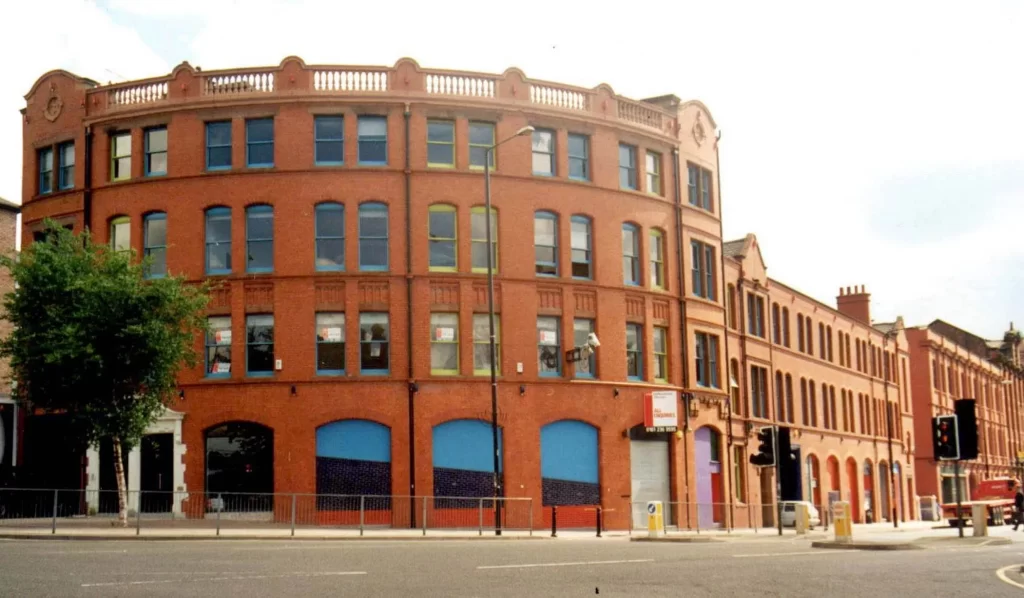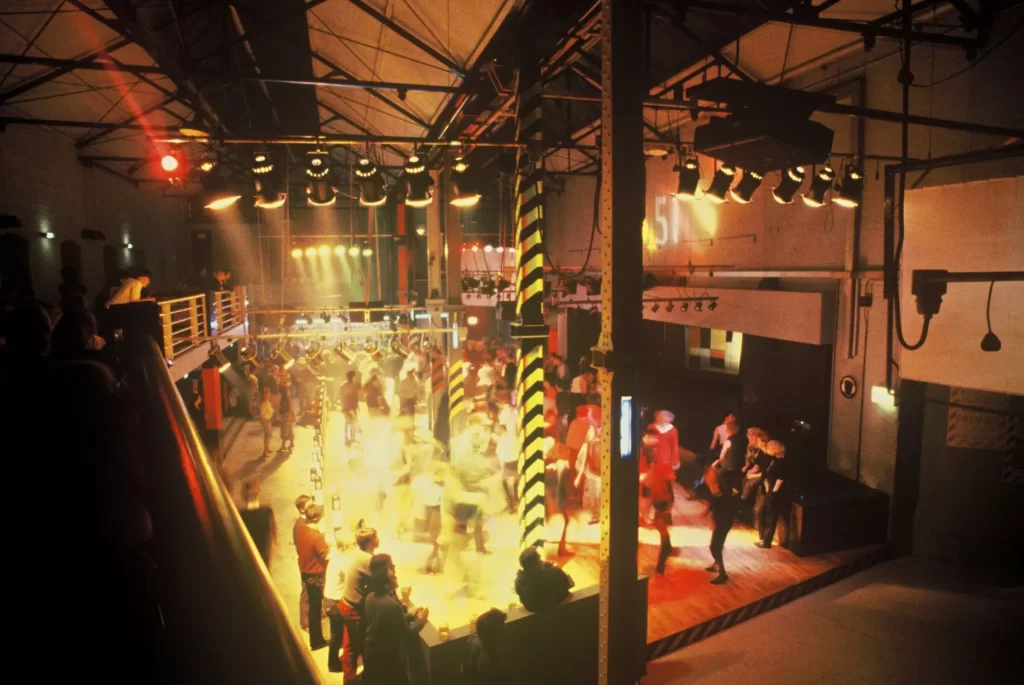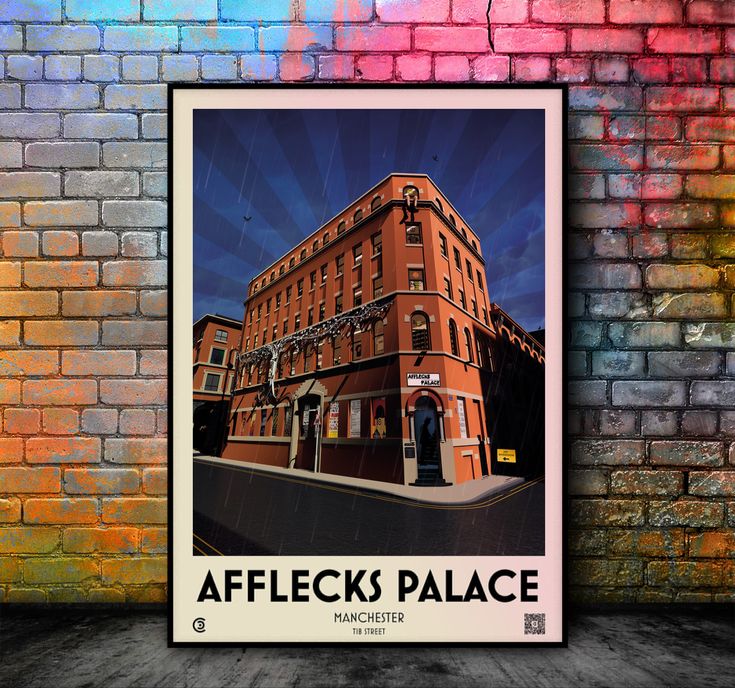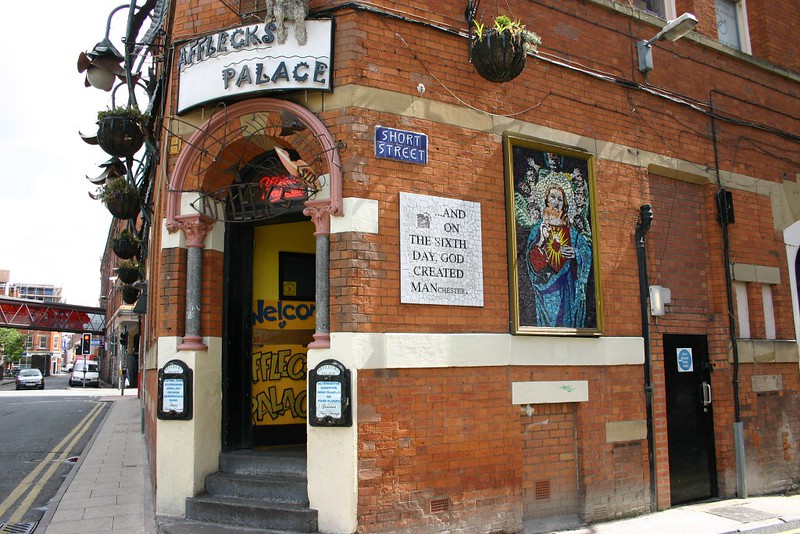Madchester
Madchester was a musical and cultural scene that developed in the English city of Manchester in the late 1980s, closely associated with the indie dance scene. Indie dance (sometimes referred to as indie rave) saw its artists merging indie rock with elements of acid house, psychedelia, and 1960s pop.
The term Madchester was coined by Factory Records’ Tony Wilson, and was popularised by the British music press in the early 1990s. However, the origin of the term can be traced back to a script meeting between Factory Records video directors Philip Shotton and Keith Jobling, known as “the Bailey Brothers”. They coined “Madchester” while developing a script and later suggested it to Tony Wilson. Subsequently, Wilson instructed the band Happy Mondays to rename their EP from “Rave On” to “Madchester Rave On”. The Happy Mondays’ lead vocalist, Shaun Ryder, recalls: “It was our video directors, the Bailey Brothers, who came up with the term ‘Madchester’, but we said, ‘Great, yeah, go with it’, because Manchester was mad at the time”.
Its most famous groups include The Stone Roses, Happy Mondays, Inspiral Carpets, The Charlatans, James, and 808 State. The scene was heavily influenced by the widespread use of drugs, especially MDMA, also called “MD” or “Ecstasy”.
A major catalyst for the distinctive musical ethos in the city was the Haçienda nightclub, co-owned by members of New Order, which played a pivotal role in what became known as the Second Summer of Love.





In mid-1989, media interest in the Manchester scene continued to grow. In September, the Happy Mondays released a Vince Clarke remix of “Wrote for Luck” as a single. In November, four important singles were released: “Move” by the Inspiral Carpets, “Pacific State” by 808 State, the Happy Mondays EP Madchester Rave On and “Fools Gold”/”What the World is Waiting For” by the Stone Roses. The Happy Mondays record, featuring the lead track “Hallelujah!”, publicised the term “Madchester” – it had originally been suggested by their video directors the Bailey Brothers as a potential T-shirt slogan, after they had coined the word for their abandoned Factory film The Mad Fuckers.
In November, the Stone Roses performed a gig at London’s Alexandra Palace and were invited onto BBC Two’s high-brow Late Show (during their performance the electricity was cut off by noise limiting circuitry and singer Ian Brown shouted “Amateurs, amateurs” as the presenter tried to link into the next item). On 23 November 1989, the Stone Roses and the Happy Mondays appeared on the same edition of Top of the Pops. The “Fools Gold” single made number 8 on the UK Singles Chart, becoming the biggest-selling indie single of the year.
Madchester became something of an industry bandwagon from this time. According to NME journalist Stuart Maconie, the British press had “gone bonkers over Manchester bands”.James were amongst the first beneficiaries of this. The local success of their self-financed singles “Come Home” and “Sit Down” led to a deal with Fontana, and they were to score chart hits with “How Was It for You” and a re-recorded version of “Come Home” in the summer of 1990.
The Charlatans came to prominence through appearances in Manchester, particularly as a support act to the Stone Roses and became strongly associated with the scene. They released a debut single “Indian Rope” in October 1989 and their second “The Only One I Know” made the UK top ten. A number of other Manchester bands gained the attention of the music press during 1990, including World of Twist, New Fast Automatic Daffodils, the High, Northside, the Paris Angels, and Intastella. These “second wave” bands, according to John Robb, “copped the critical backlash, but were making great music”.[38] and they also received a great deal of local support with TV appearances on various Granada shows and local radio play.
